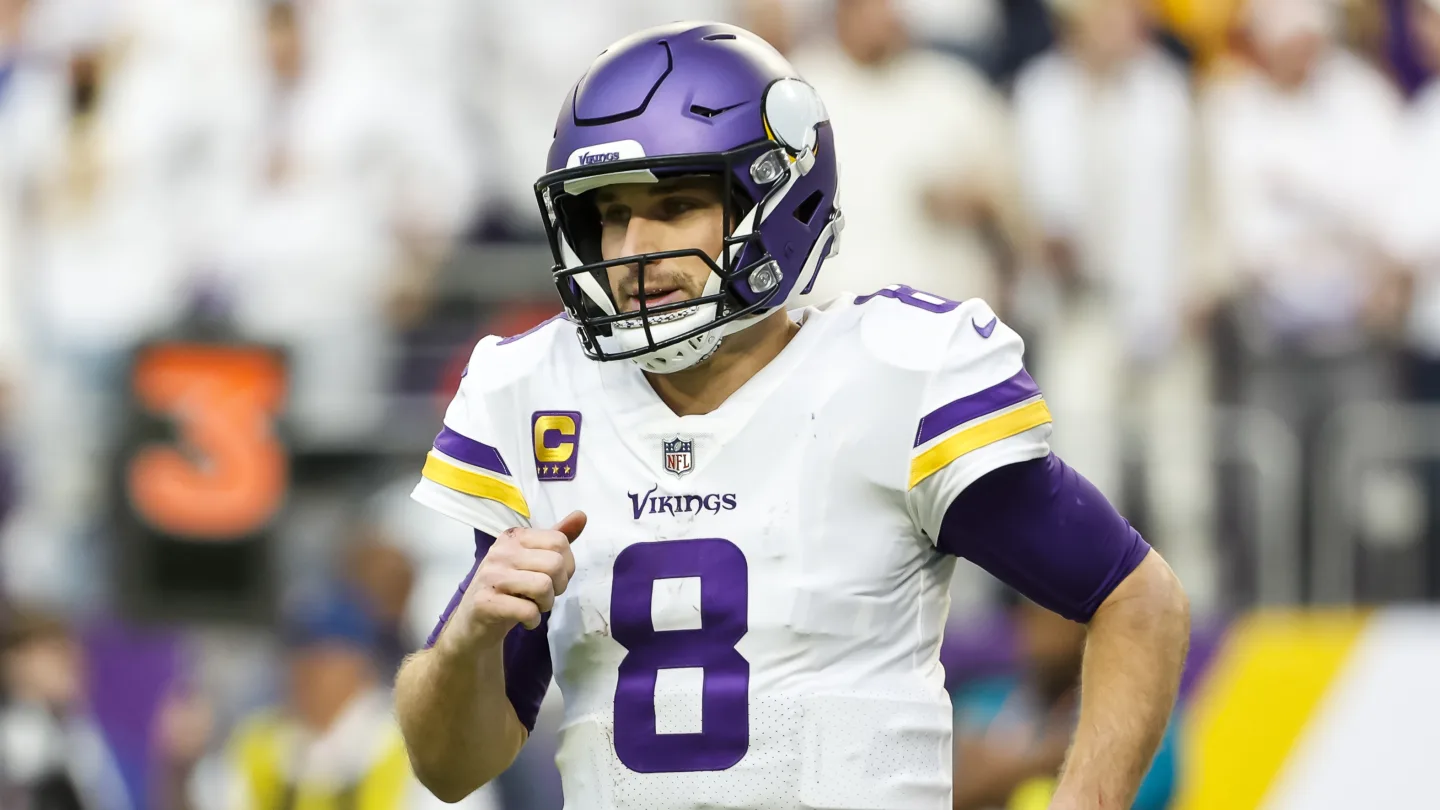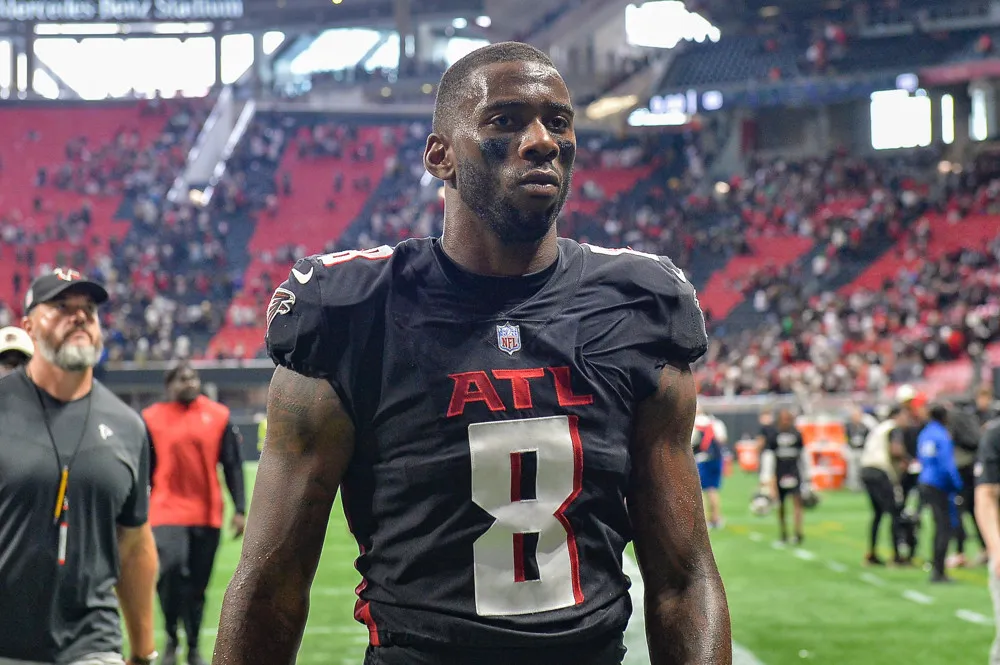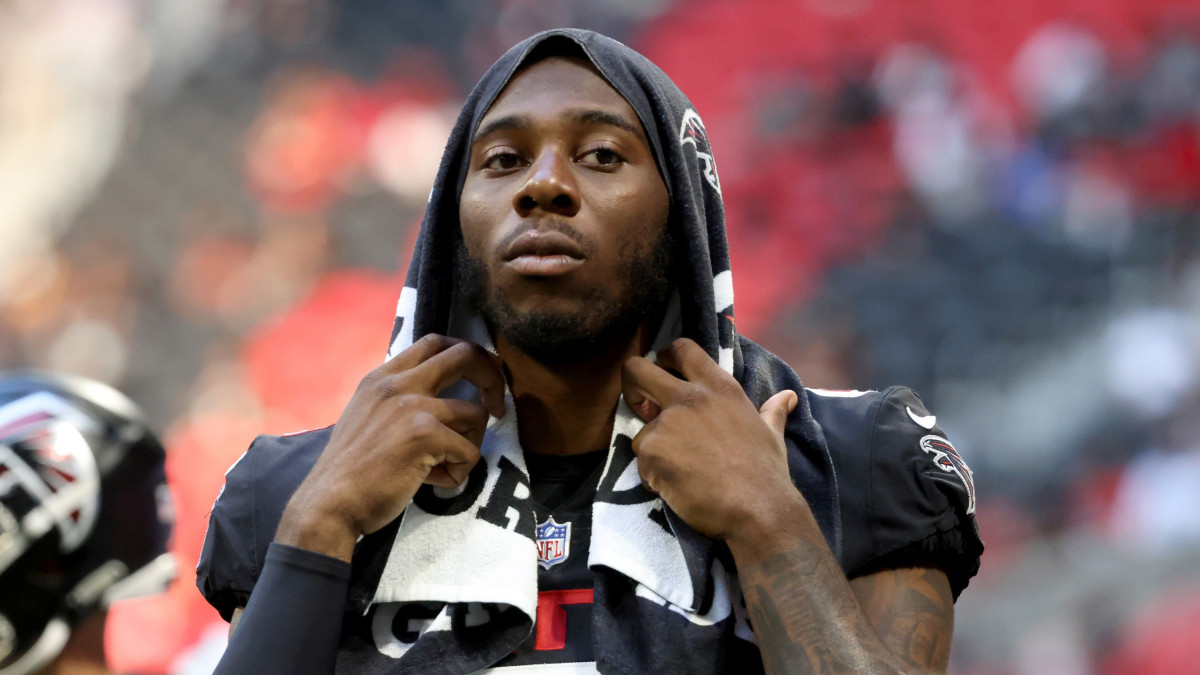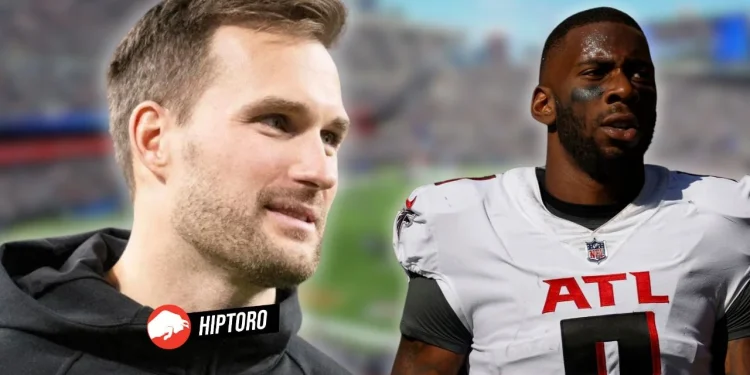When Kirk Cousins, the newly minted Atlanta Falcons quarterback, considered donning the No. 8 jersey, a symbol of his athletic identity since high school, the cost was astonishingly prohibitive.
The narrative surrounding Cousins’s attempt to continue wearing his signature No. 8 jersey—a journey that included discussions, negotiations, and ultimately, a decision that veered away from tradition—casts a fascinating light on the complexities and unexpected costs involved in professional sports branding and merchandise.
Atlanta Falcons’ High Price of Tradition
In an illuminating discussion on Shaquille O’Neal’s podcast, Cousins unveiled the intricate details of his and Kyle Pitts’s intentions with the No. 8 jersey.
Both athletes, recognizing the importance of their respective jersey numbers, found themselves at a crossroads when faced with the financial implications of making a swap. The NFL’s stringent rules on jersey numbers added another layer of complexity to their decision-making process.
According to these guidelines, the transition to a new number necessitates the purchase of all existing merchandise featuring the old number—a stipulation that places the cost in the “several hundred thousand dollars” range.

The NFL’s stringent rules on jersey numbers added another layer of complexity to their decision-making process. According to these guidelines.
The transition to a new number necessitates the purchase of all existing merchandise featuring the old number—a stipulation that placed the cost in the “several hundred thousand dollars” range.
Cousins’s recounting of the situation sheds light on the sentimental value athletes place on their numbers. For Cousins, No. 8 was more than just fabric.
It was a token of his journey and achievements across different echelons of football—from his high school days to his tenure with the Minnesota Vikings and Washington. Yet, despite the depth of this attachment, the financial burden of rebranding was insurmountable.

Kirk Cousins’ New Chapter in Jersey Numbers
The saga reached its climax when the league intervened, clarifying that both Cousins and Pitts would need to shoulder the cost of the existing No. 8 Pitts jerseys.
This revelation prompted Cousins to adopt No. 18, marking his third jersey number in his NFL career. Meanwhile, Pitts retained No. 8, a decision influenced by his readiness for a change, albeit one that never materialized due to the prohibitive costs involved.
This incident, while seemingly a minor blip in the grand scheme of NFL seasons, speaks volumes about the business behind the game. The cost of changing a jersey number—often overlooked by fans—is a testament to the sprawling ecosystem of merchandise, branding, and fan engagement that underpins professional sports.
Kyle Shanahan when he realizes Brock Purdy is doing too well to justify acquiring Kirk Cousins this off-season pic.twitter.com/ylugl0Fu5d
— Gary Treeman (@PurpyNFL) December 5, 2023
Beyond the Number
Kirk Cousins’s journey with the No. 8 jersey is emblematic of the myriad considerations athletes face beyond their performance on the field. The interaction between personal identity, league regulations, and the economic realities of professional sports provides a compelling narrative that goes beyond touchdowns and tackles.
It’s a reminder of the personal sacrifices and decisions athletes make in the name of the game—decisions that, at times, involve letting go of traditions for practicality.

In Atlanta, Cousins will embark on a new chapter with No. 18, a number that, while different, symbolizes a fresh start and new opportunities. As for Kyle Pitts, the continuation with No. 8 is a nod to both his past achievements and future aspirations.
Together, their story is a fascinating glimpse into the complexities of professional sports—a tale of numbers, negotiations, and the unwavering spirit of competition.

Source: sportsaldente









